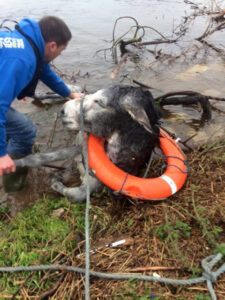A heart attack often comes as a surprise, but your body might give subtle warning signs weeks before the event. Recognizing these signs early could save your life. Heart disease is the leading cause of death worldwide, but studies show that symptoms often appear up to a month before the heart attack occurs. These early symptoms are frequently mistaken for everyday stress, fatigue, or even indigestion. Here’s a breakdown of the key warning signs to watch out for.
1. Unusual Fatigue
Feeling tired after a long day is normal, but extreme, unexplained fatigue could be a red flag. Many women report feeling abnormally drained weeks before a heart attack, sometimes even without chest pain.
Warning Signs:
- You’re exhausted even after a full night’s sleep.
- Simple tasks like walking or climbing stairs leave you unusually drained.
- Sudden, severe fatigue that doesn’t improve with rest.
If you experience persistent tiredness, especially with other symptoms, don’t brush it off as stress or overwork.
2. Shortness of Breath
Sudden breathlessness, especially without exertion, could indicate heart trouble. If you feel like you can’t catch your breath, your heart may be struggling to pump blood effectively.
Warning Signs:
- Gasping for air after light activity or even while resting.
- Feeling lightheaded or dizzy with breathlessness.
- Difficulty breathing while lying down.
This symptom is often mistaken for anxiety, asthma, or a lack of fitness, but it could point to a heart attack in progress.
3. Chest Pain or Discomfort
Chest pain is the most commonly known heart attack symptom. However, it doesn’t always present in the typical “elephant on the chest” way.
Warning Signs:
- A mild tightness, squeezing, or pressure in the chest.
- Pain may come and go rather than being constant.
- It may feel like heartburn or indigestion.
Women often experience less intense chest pain, which makes it easier to overlook. If you notice persistent discomfort, especially combined with other signs, seek medical help.
4. Pain in the Back, Neck, Jaw, or Shoulders
Women are more likely than men to experience upper body pain rather than just chest pain. This could be an overlooked sign of a heart attack.
Warning Signs:
- Dull, aching pain in the jaw, back, or shoulders.
- Discomfort spreading down one or both arms.
- Pain that wakes you up at night or comes and goes.
This pain is often misdiagnosed as muscle strain or arthritis, which can delay proper treatment.
5. Nausea, Indigestion, or Stomach Pain
Stomach-related symptoms can also signal a heart attack, often mistaken for food poisoning or the flu.
Warning Signs:
- Nausea or a sick feeling in your stomach.
- Unexplained vomiting or intense indigestion.
- A heavy, uncomfortable sensation in the upper abdomen.
These symptoms resemble acid reflux or a stomach bug, so people often ignore them, missing a critical sign of heart trouble.
6. Cold Sweats and Dizziness
If you experience sudden cold sweats without exertion, your body might be trying to warn you. This, combined with dizziness, could signal a heart attack.
Warning Signs:
- Profuse sweating that occurs suddenly.
- Feeling clammy, lightheaded, or faint.
- A sensation similar to a panic attack.
Sweating heavily while at rest is abnormal and should be taken seriously, especially when paired with other symptoms.
7. Sleep Disturbances
People, particularly women, often experience poor sleep leading up to a heart attack.
Warning Signs:
- Difficulty falling or staying asleep.
- Waking up feeling anxious or breathless.
- Night sweats or discomfort disrupting sleep.
While sleep issues can be caused by various factors, persistent disturbances could indicate an underlying heart problem.
When to Seek Help
If you experience any of these symptoms, especially if they appear suddenly or feel unusual, contact your healthcare provider immediately. The earlier you act, the better the chances of minimizing damage to your heart. Trust your instincts and never ignore strange symptoms, even if they seem insignificant at first.
Take Action Now
Heart disease can often be prevented or treated if caught early. If you notice any of these warning signs, seek medical help promptly. Taking action in time can make all the difference.
Read More on Related Topics:
- Pope Francis’ Heartbreaking Final Gesture to His Nurse Before Death
- Pope Francis Describes Death as a New Beginning Before His Passing
By recognizing the early warning signs of a heart attack, you can take the necessary steps to protect yourself and your loved ones. Stay informed and stay healthy!


